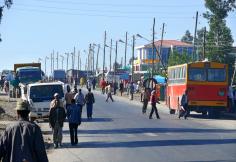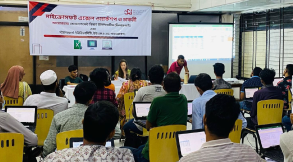Business plan competitions and business incubation and acceleration programmes are becoming increasingly popular as instruments of industrial policy. They are intended to catalyse industrialisation and job creation through identifying and supporting high-growth potential entrepreneurs (gazelles) and nurturing local entrepreneurship. Huge resources are channelled to implement such policies by governments and international organisations in Sub-Saharan Africa including Ethiopia, the focus of this study. However, empirical evidence on the effectiveness of these policies in developing countries is scant. This study evaluates the causal effect of business plan competitions in Ethiopia on business entry and expansion.
To this end, the study pools data from two similar business plan competitions called Bruh and EDC Startups held in early 2021 by the Jobs Creation Commission (JCC) and Entrepreneurship Development Centre (EDC). Outcome data from the universe of about 500 applicants were collected about a year after applying to the competitions through a phone survey, and self-reported outcomes were independently verified with administrative data whenever possible. By exploiting the scores given by judges during the screening of the applicants and exogenous cut off points, a fuzzy regression discontinuity design (RDD) was used to compare applicants just above the cutoff, who received the competition’s training programme, to those below the cutoff, who received no training. Applicants were evaluated on the short-term impact to business entry and expansion measured by whether they were operating a firm, employment, sales, profit, and other aggregate measures of growth.
This study provides additional evidence to the current sparse literature about new policy options designed to foster entrepreneurship in developing countries. The study is also one of the first to document evidence in these business plan competitions on the control group’s non-compliance by seeking alternative training programmes elsewhere. This has significant implications for understanding the results of previous studies and for designing future research. In addition to its contribution for the academic literature, the result of this study is expected to inform a multitude of public and private policy stakeholders working on entrepreneurship development about the effectiveness of business plan competitions in nurturing entrepreneurship in low-income countries.
Preliminary results reveal that, by any measure of business success, the training beneficiaries of the business plan competitions were not different from their rejected counterparts due to the fact that the rejected applicants (control group) had also similar training in other similar programmes. Though the study is not informative about the effectiveness of the individual programme, the substantial take-up of alternative programmes among the control group documented in this study could be helpful to explain the modest or negligible impacts the entrepreneurship training programmes reported in previous studies.
















































